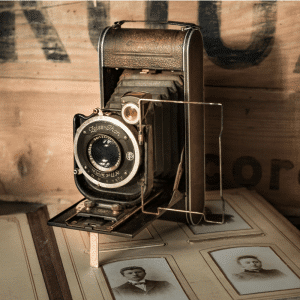Moving to Assisted Living? How to Downsize

How many of us are living with entirely too many items in our possession? If we're honest, probably nearly every person in our country could stand to shed some excess in this area. We've all got excess. If you raised a larger family, especially on a homestead or farm, you most definitely have excess. We're not here to examine how we find ourselves in such a situation, however, but rather how to deal with getting rid of some of the excess so that we can move forward into a healthier atmosphere for us!
The house. What to do with the house? It's a hugely daunting question if you've never considered how to make a transition from owning your own home to living somewhere else. There is a proverb that says, “How do you eat an elephant? One bite at a time.” This is precisely how you'll need to deal with getting rid of your house & possessions, one small step at a time. First, know that you will not be able to do this alone, or quickly. It will take time. The first step would be to get an assessment on the value of your home/property. Check with a local realtor with whom you can list it if you will be needing the income in order to fund your move into an #assistedlivingfacility. If you do not need that extra income, consider giving it as an inheritance to someone you love, or preparing to sell it in order to gift the profit for those you love. When you begin discussing the process with your family, be prepared for all kinds of emotional responses. People have a number of emotions that are connected with places and memories & it is natural to see a full spectrum. If there is a smooth way to pass it on or sell it to a family member without causing resentment, do so, otherwise you should feel no guilt at selling it on the market to avoid resentment between family members.

Beginning with the more valuable furniture and possessions, decide which things give you joy & those that you'd like to have around you for the remainder of your life. Do not feel guilt about having them moved. Do you enjoy playing an instrument? Will you have room in the place you're moving to? Bring it along & you'll find that after you've downsized, you'll have more time to practice. Do you have a favorite hobby? Bring the items along that will enable you to participate in the hobby as long as possible. Downsizing does not mean getting rid of everything you enjoy, but rather narrowing your scope to keep only those things that you DO enjoy and ridding yourself of the rest.
If you can, try to go through your home in categories & move as quickly as you can from one category to the next. Discard those things that have no value to you or others. Donate those items that have use to a charity. Goodwill is working together with USPS to accept items that you ship free of charge.
You'll have obvious needs where you're going. If you need kitchen items, consider which ones are the most pertinent to your situation. Now is a good time to get rid of the excessive kitchen gadgets, pan collections, tea sets, silver service, etc. If you're moving to a smaller location, you'll more than likely not be the one hosting large family gatherings & will, therefore, need fewer kitchen items. Keep basic linens & clothing items. Keep photos that are meaningful to you, distribute the rest that may hold more meaning for others in your family.
Above all, keep the lines of communication open with all of the people who will be affected by the decisions you're making. You want this move to be a positive one for you and for your family, so don't allow petty miscommunications and misunderstanding to ruin the good things that can come from this time of transition. Moving is always stressful, but taking it one step at a time, one day at a time, you'll be able to accomplish the huge task of downs

